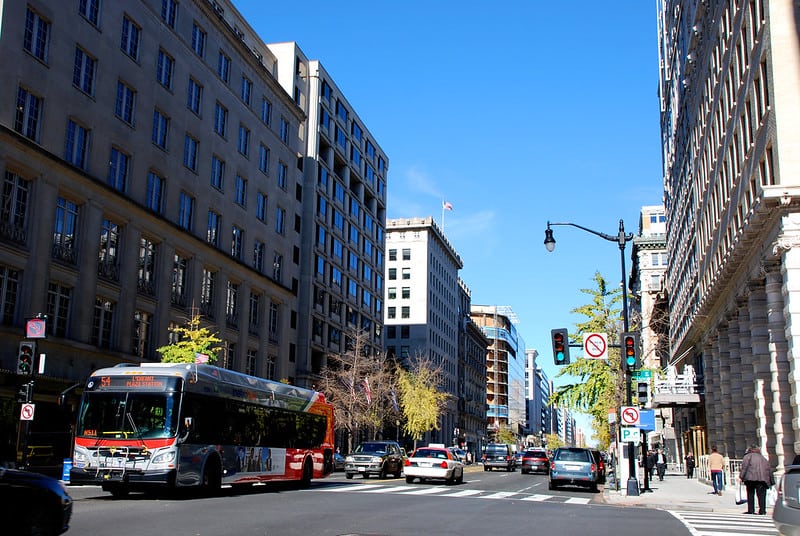 Image by BeyondDC. www.flickr.com/photos/beyonddc/24601939942.
Image by BeyondDC. www.flickr.com/photos/beyonddc/24601939942.
A proposed “congestion charge” in D.C. would impose a $2 tax on rides, placing a significant burden on hard working area residents.
The tax would raise the cost of rideshare trips in and out of an area of downtown D.C. stretching from the Central Business District to Southwest D.C., during certain periods of every weekday. This provision from Councilmember Brianne Nadeau (D-Ward 1) will create more problems than it solves while unfairly targeting a single industry, making this service less accessible to D.C.’s low-income residents.
Councilmember Nadeau seeks to create an additional burden on transportation services in D.C., making it more difficult for people to travel to work, go out to eat, and explore the city. This regressive “surcharge”, which is, in fact, a tax, will force residents of D.C. to spend more of their income on transportation, disproportionately affecting residents with fewer economic resources.
During this period of record high inflation, which also unequally affects low-income people, a $2-per-trip tax on rideshare services is simply not justifiable. With cost-of-living on the rise as well, this tax only furthers the economic burden felt by residents of the District.
In seeking to justify this senseless tax on rideshares, Nadeau argues that the fee will help address traffic woes and increase tax revenue to fund public transportation programs. What Nadeau fails to consider is how this targeted tax will impact those living in downtown and Southwest D.C., those who have been singled out by the Councilmember.
Outrageously, Councilmember Nadeau represents a district significantly north of the portion of the city that would be subject to this tax. Councilmember Brooke Pinto (D-Ward 2) actually represents the D.C. residents and business who would be most impacted by this proposal and says downtown residents will “have to pay a premium just to leave their home or return home.”
Downtown D.C. has “struggled, uniquely” to rebound from the economic impacts of the Covid-19 pandemic and this proposed tax will only exacerbate these issues. According ro mobile phone data analyzed by researchers, D.C. has only regained 70% of downtown activity since the pandemic. Restaurants, retailers, and many other businesses will lose customers if travel around their location is subject to a unique tax on rideshare trips. ATR strongly opposes this tax, as it will lower revenue for businesses, costing jobs in the process.
Rideshare services also offer a safer alternative to public transportation, as crime on the D.C. Metro system has increased in recent years. Aggravated assaults at Metro facilities have increased by more than 80% over the past five years and theft crimes are returning to pre-pandemic levels. While the Metro is an essential service for many D.C. residents, it is unfair to reduce the accessibility of safer, alternative transportations options.
This proposed tax on rideshare trips in and out of downtown D.C. will make this service available to low-income residents of D.C. and unfairly hurt downtown businesses and residents. Singling out one industry for a congestion tax is unfair to users of rideshare services who are already forced to pay a 6% tax on all trips and is certainly unfair to the rideshare industry. Efforts to reduce traffic congestion and improve public transportation are commendable, but not when they come at the expense of the cities more vulnerable residents and business owners. It is crucial that the surcharge tax does not become law in the District.

